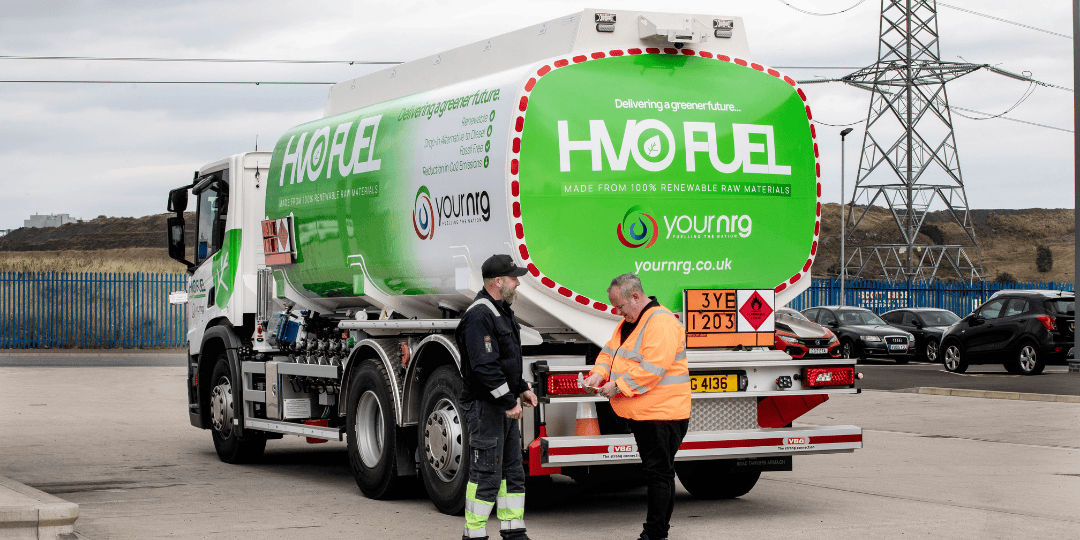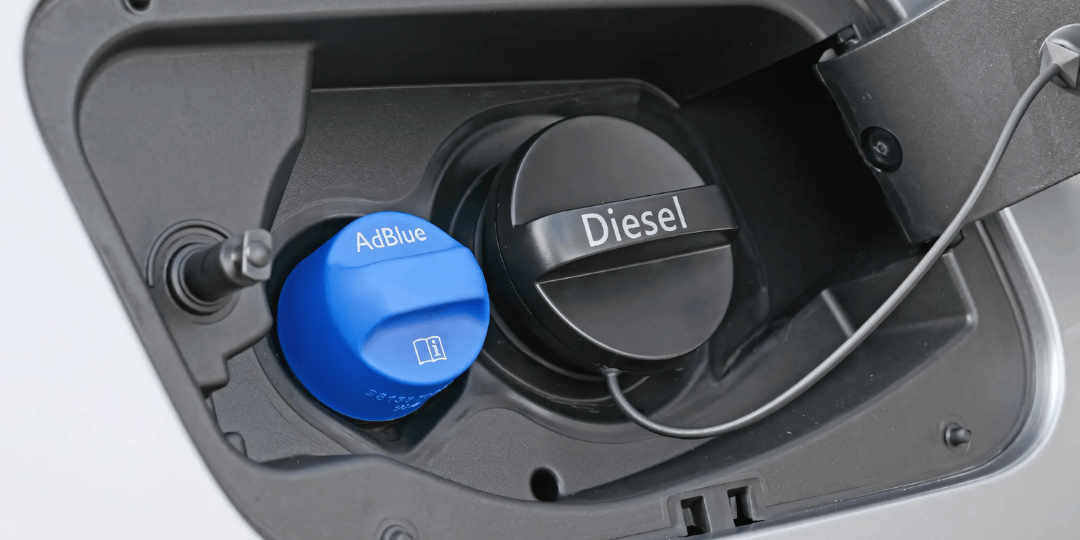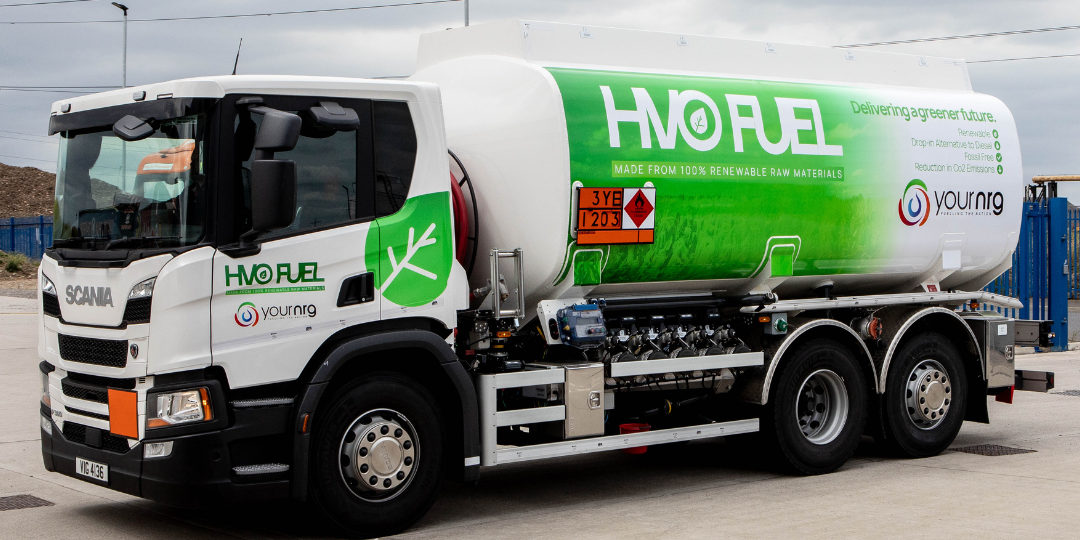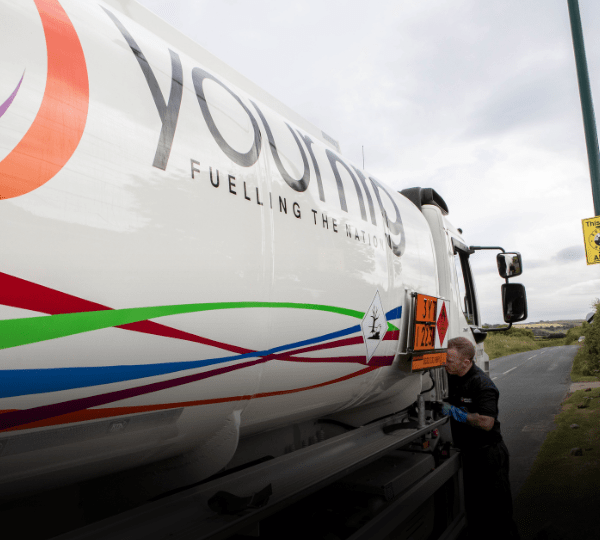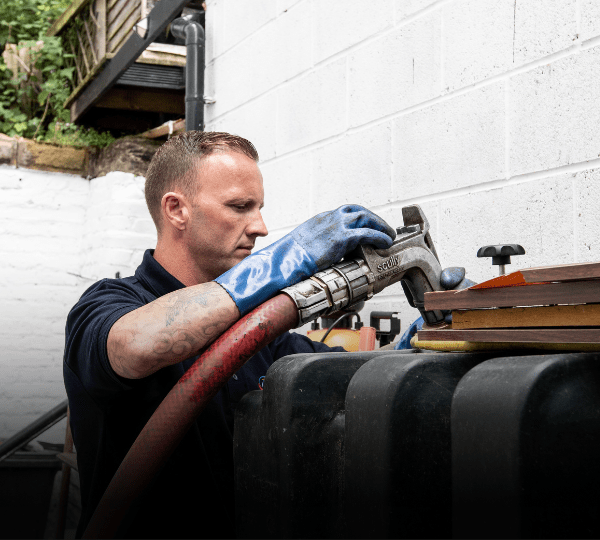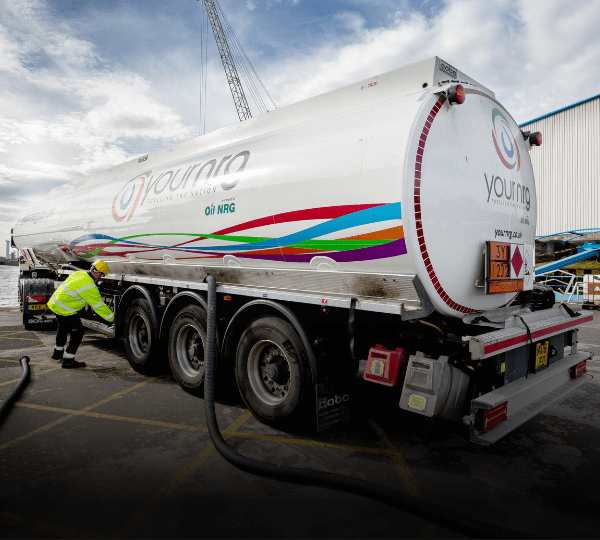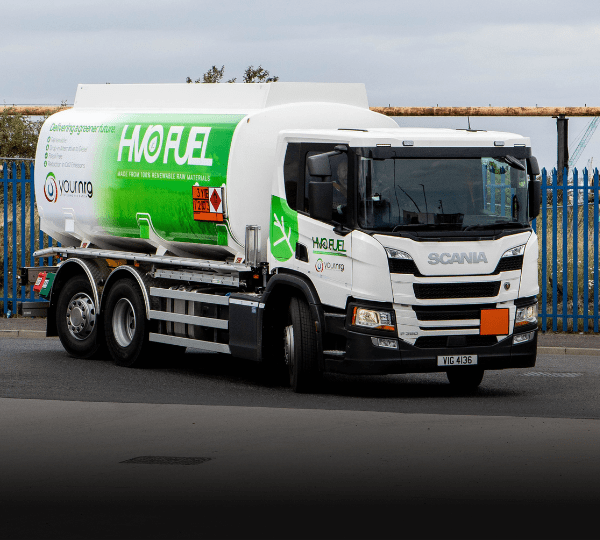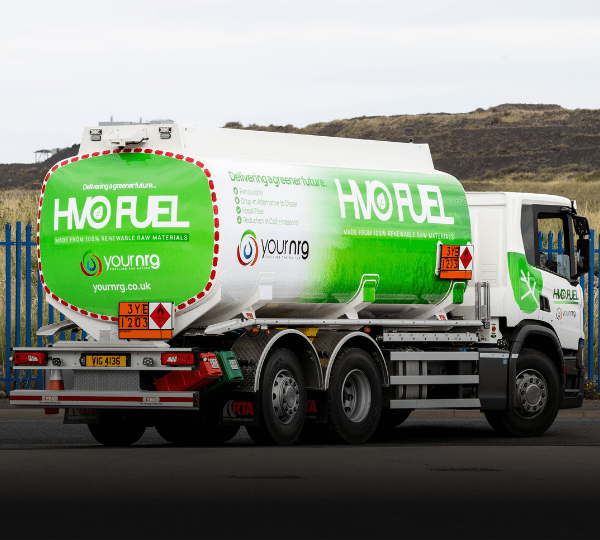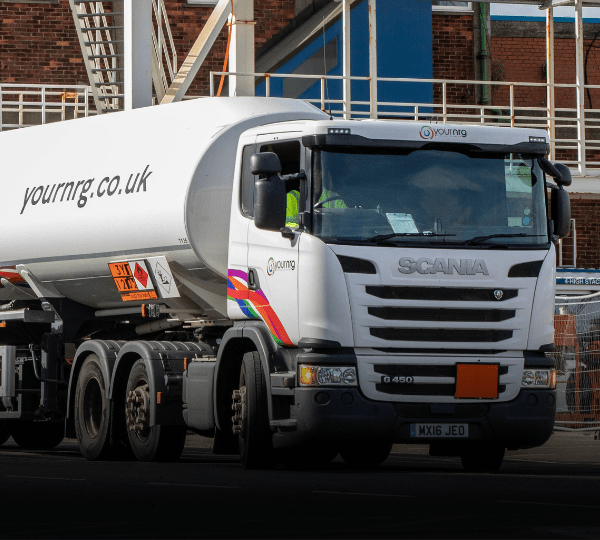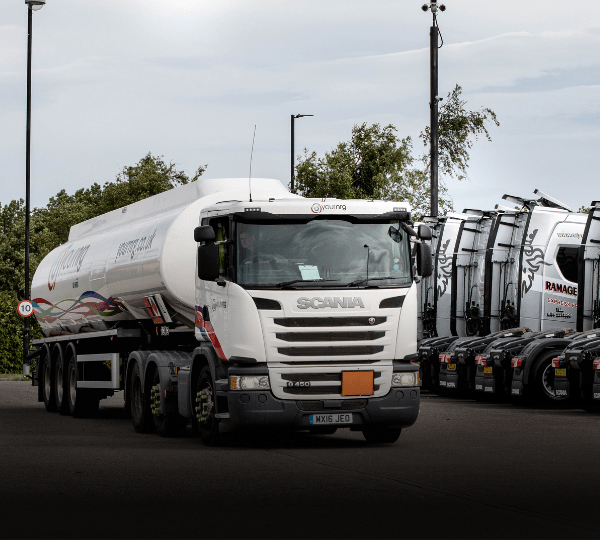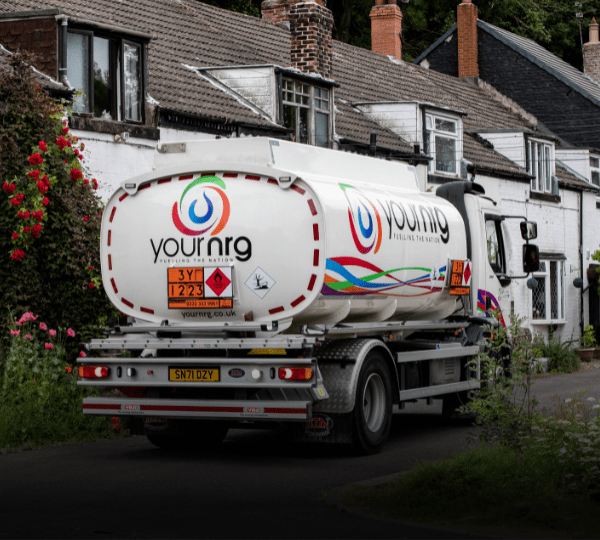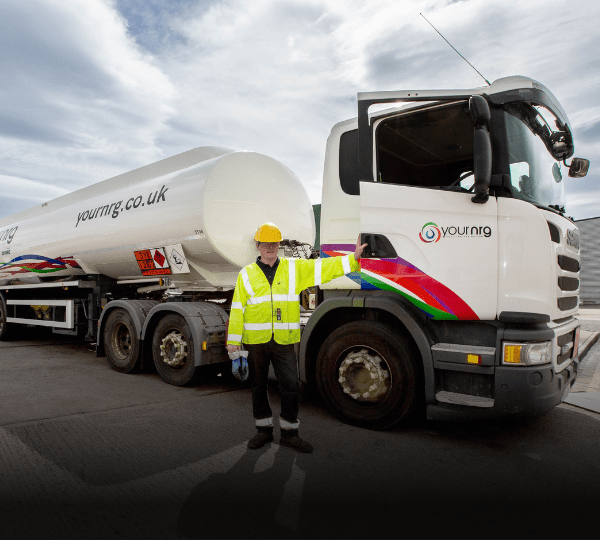But like any rising star in the fuel industry, it comes with its fair share of myths and misunderstandings. In this post, we tackle the most common myths about HVO Fuel – from shelf life and cold weather performance to cost-effectiveness and sustainability.
Jump to:
- Myth 1: HVO is not a cost-effective solution
- Myth 2: HVO has a short shelf life
- Myth 3: Switching to HVO involves engine modifications
- Myth 4: HVO is less efficient than traditional diesel
- Myth 5: HVO doesn't work well in cold climates
- Myth 6: The UK doesn't have a reliable supply of HVO
- Myth 7: HVO is an unreliable fuel source
- Myth 8: HVO isn’t 100% sustainable
- Ready to make the switch to HVO?
Myth 1: HVO is not a cost-effective solution
While the price per litre can be slightly higher than traditional fossil diesel, when you factor in reduced maintenance, improved engine cleanliness, and fewer fuel-related issues, the total cost of HVO Fuel can be lower over time.
Its clean combustion properties reduce soot build-up, extending the time needed between servicing and protecting your engine for longer. For fleet operators, construction firms, and agricultural businesses, this translates to fewer breakdowns, less downtime, and better reliability.
Myth 2: HVO has a short shelf life
HVO Fuel has a longer storage lifespan than conventional fuels thanks to its high oxidation stability. Unlike traditional fossil diesel, it resists water absorption and microbial growth, which are two of the main causes of fuel spoilage.
Where fossil fuels degrade and require expensive additives or frequent tank cleaning, HVO Fuel stays clean and ready to use at any time. This makes it perfect for equipment that may sit idle for weeks or months at a time, including:
- Off-grid tanks
- Back-up generators
- Standby power systems
- Construction equipment
For sectors like farming and logistics, the extended storage lifespan of HVO Fuel offers peace of mind and flexibility that traditional fuel can’t, especially in seasonal or remote applications.

Myth 3: Switching to HVO involves engine modifications
One of the biggest advantages of HVO Fuel is that it’s a true drop-in replacement for standard fossil diesel, meaning no engine modifications are needed in most cases.
HVO Fuel meets the EN15940 fuel standard, which covers diesel fuels suitable for use in modern diesel engines, and has been approved by leading engine manufacturers for use in commercial fleets, agricultural equipment, and more. For businesses, that means no need to invest in expensive retrofits, make tank adjustments, or deal with inconvenient downtime.
Myth 4: HVO is less efficient than traditional diesel
HVO Fuel is just as efficient as normal diesel, with no loss of performance. It’s specifically engineered for clean combustion, offering a more complete fuel burn, improving engine performance, and minimising emissions.
Unlike older first-generation biofuels, which were often blended and unstable, HVO Fuel is a synthetic renewable diesel refined using advanced hydrotreatment. This delivers consistent combustion, improved efficiency, and better performance.
Myth 5: HVO doesn't work well in cold climates
In many cases, HVO Fuel actually performs better than traditional diesel, as it remains fluid and fully functional in cold climates. With a cold filter plugging point (CFPP) as low as -32°C, HVO Fuel outperforms standard diesel in frosty conditions as it doesn’t thicken or gel like traditional fuels.
This removes the need for seasonal additives or any pre-winter tank prep in exposed or rural settings.

Myth 6: The UK doesn't have a reliable supply of HVO
HVO Fuel is now more accessible than ever in the UK thanks to growing demand and increased investment in renewable energy sources. As businesses across sectors look for cleaner, more sustainable fuels, the UK supply chain has scaled to meet those needs.
Today hydrotreated vegetable oil is being produced from a wide range of renewable feedstocks – including vegetable oil, animal fats, and organic sources – with supply routes and infrastructure expanding with it.
Myth 7: HVO is an unreliable fuel source
HVO Fuel is one of the most stable and dependable alternative fuels on the market. It’s produced through an advanced hydrotreatment process that saturates it and removes impurities, giving it a consistent chemical structure and excellent storage performance.
Unlike traditional biodiesel, which can absorb water, oxidise, and form sludge over time, HVO Fuel is fully synthetic, so it doesn’t degrade as easily, attract moisture, or clog filters. That makes it perfectly suited to modern engines, machinery, and high-demand fleets that require constant uptime.
Myth 8: HVO isn’t 100% sustainable
HVO Fuel is one of the most sustainable alternative fuels available today. It’s produced from renewable vegetable oils, animal fats, and other organic sources – many of which are made from waste products and don’t compete with food crops for water. That makes HVO Fuel a good choice for businesses looking to reduce emissions without worrying about ethical sourcing or excessive land use.
Through a refined hydrotreatment production process, HVO Fuel is made to burn exceptionally cleanly, cutting net carbon emissions by up to 90% compared to fossil fuels. It also produces fewer particulates and virtually eliminates sulphur and aromatics, so it doesn’t affect local air quality, either.

Ready to make the switch to HVO?
As a trusted UK supplier of high-quality HVO Fuel, we offer competitive prices, expert guidance, and dependable deliveries for your site and schedule. Whether you’re running a fleet or managing critical infrastructure, we’ll help you transition to HVO Fuel with zero hassle. Our experienced team has worked closely with fleet operators for decades to deliver the fuel they need to stay operational all year round.
Get in touch today at 01642 686000 or get your online quote to schedule your delivery today.
